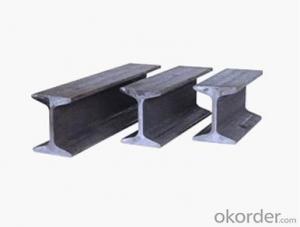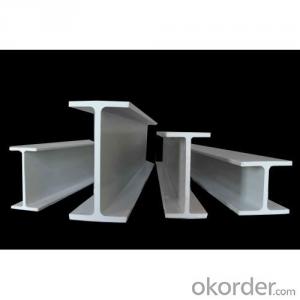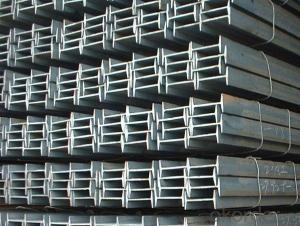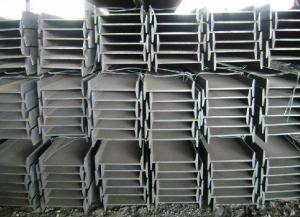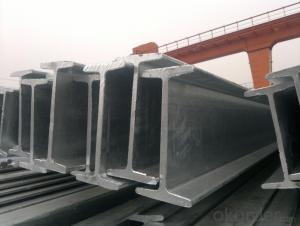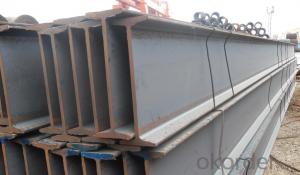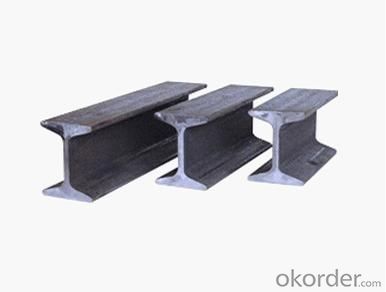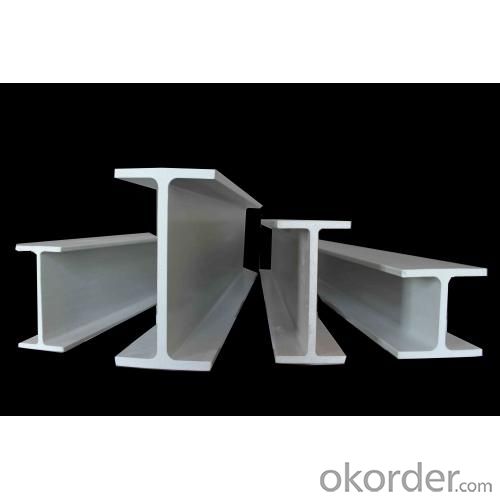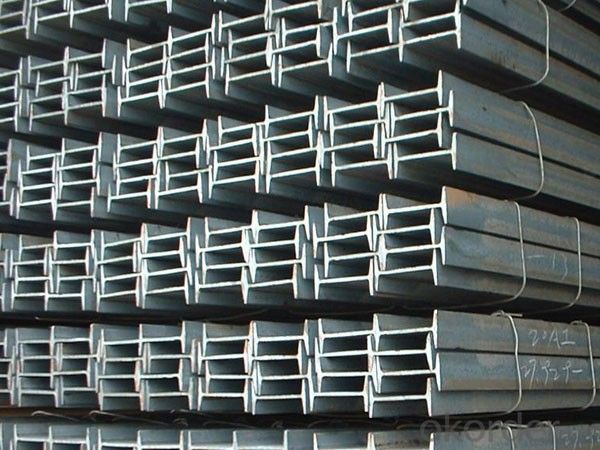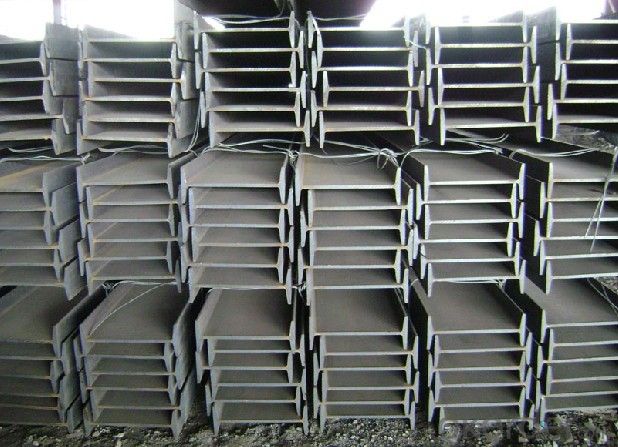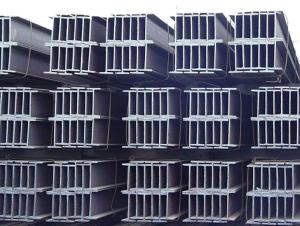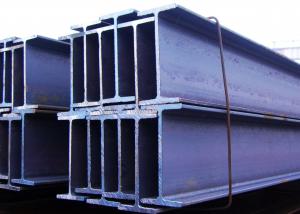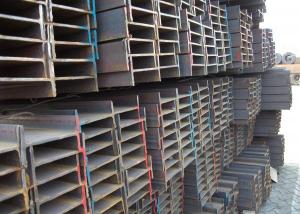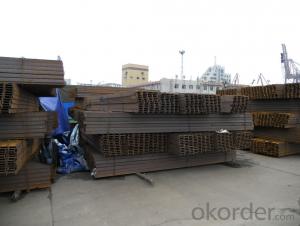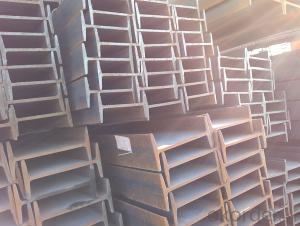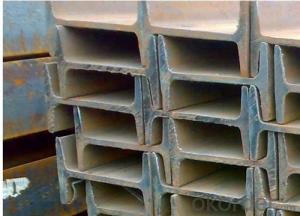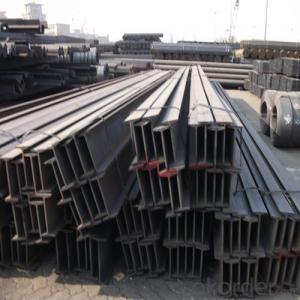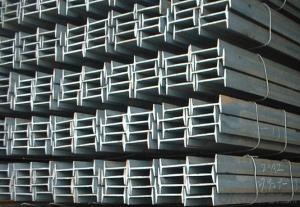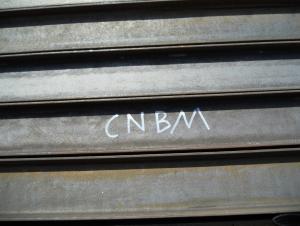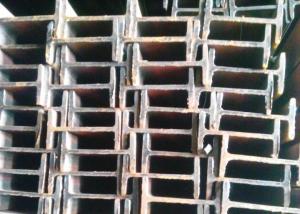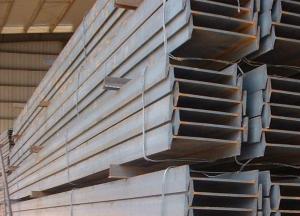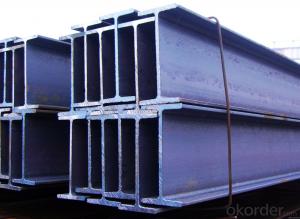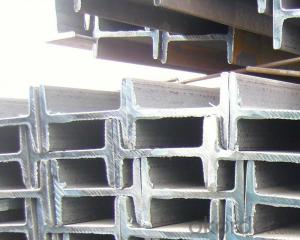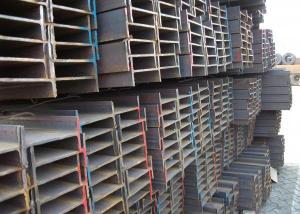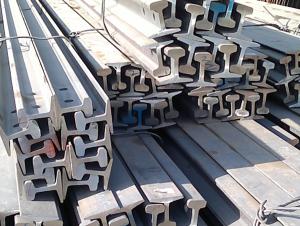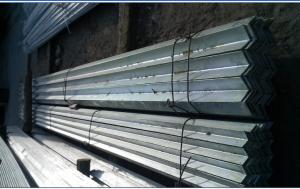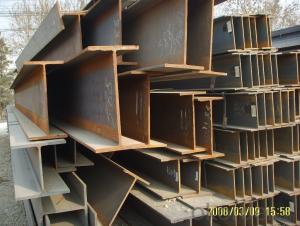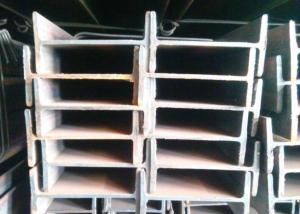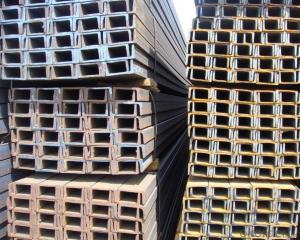Steel I Beam ,Supply of All Models,Hot Sell!!
- Loading Port:
- Shanghai
- Payment Terms:
- TT OR LC
- Min Order Qty:
- 2500 PCS
- Supply Capability:
- 250000 PCS/month
OKorder Service Pledge
OKorder Financial Service
You Might Also Like
Detail information of Steel I Beam
Height: | 100-400mm |
Thickness: | 4.5-14.5mm |
Surface: | Painted or Galvanized. As customers’ requirements |
Length: | As customers’ requirements |
Size: | 100*68*4.4mm--400*146*14.5mm . |
Punch: | Can be punched as customer's drawing |
Material: | Q195/Q235/ Q215/Q345/SS400/S235JR, A36,SS400,SS540 ASTM A36 |
Product Advantage
Prime quality
Competitive price
Professional service
Prompt delivery & Seaworthy packing
Mill Test Certificate
Company information
Our company is engaged in the production and trade of i beam, h beam, steel pipe, steel plate, steel coil, angle bar, channel beam,galvanized steel coil, gi coil, ppgi coil, wire rod, stainless steel and so on .
We have established business relationships with clients in the Southeast Asia,South Asia, North America, and many other countries and regions. Our goal is to provide all our customers with qualified and low-cost steel products.
Packaging & Delivery
Packaging Detail: Standard seaworthy packing
Delivery Detail: 7-10 days after receiving deposit
Product Picture
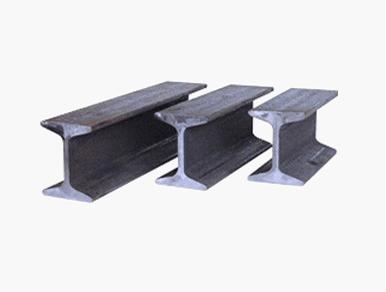
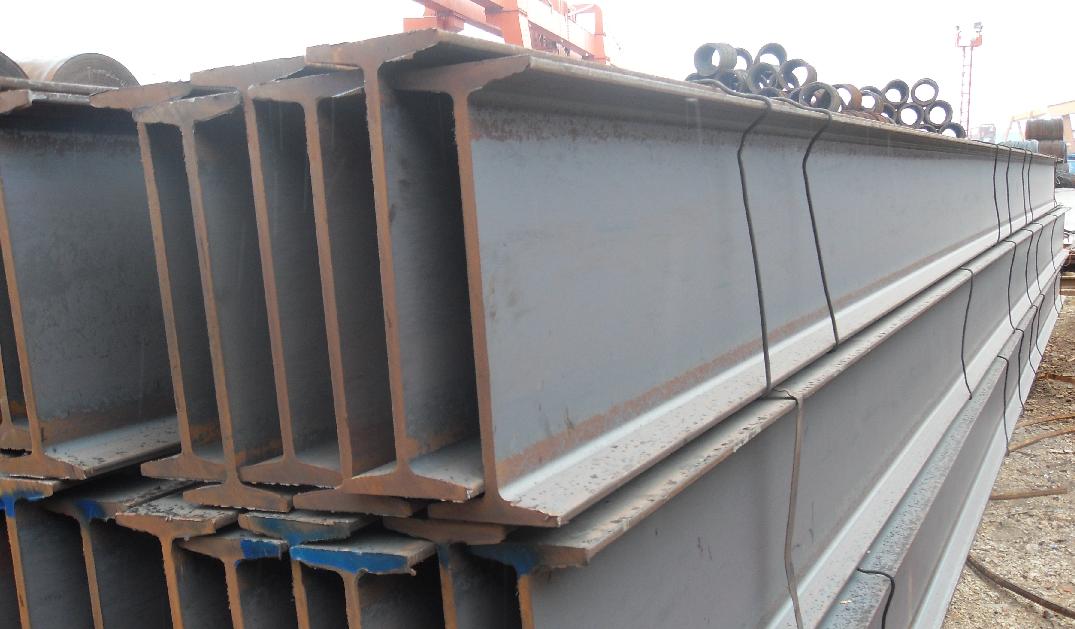
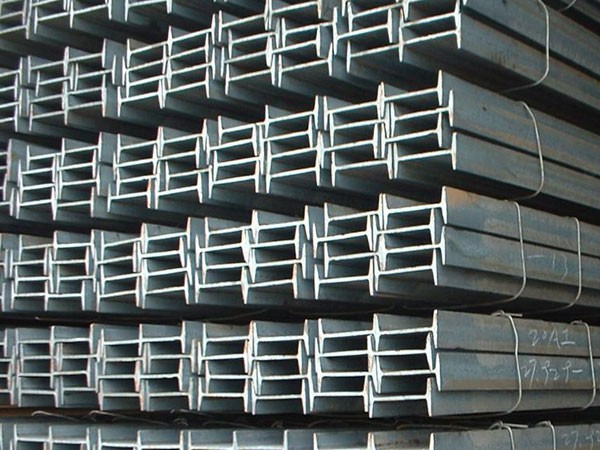
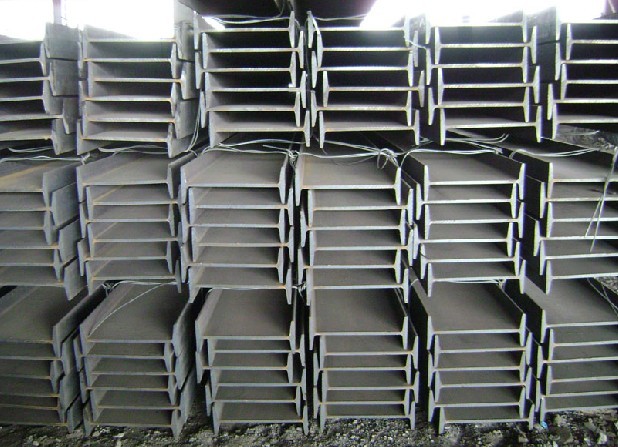
FAQ
(1) Quality Assurance "Knowing our mills"
By employing strict Sourcing Practices and carrying our pre-shipment inspection for every order no matter how small, gives us a firm grasp on maintaining the quality of our products. Due to our Beijing location we regularly visit our cooperating Steel Mills in the north, keeping the quality in check.
(2) On time delivery "No waiting around"
Due to the size of our company, which is heavily invested in, we are able to avoid cash flow problems and make quick payments to the mills, ensuring our customers' products are produced in good time and onboard within the time agreed upon in our contracts.
(3)One stop shopping "Everything you need in one place"
By maintaining and continually improving our quality product range you're sure to find everything you need in one place. Backed up by our flexible and attractive payment terms you needn't shop anywhere else for Steel From China.
(4) Flexible Payment Terms "Better options for you"
We are now able to accept a variety of payment term options including open account terms.
Our service formula: good quality+good price+good service=customer's trust
Steel I Beam Specification Table
Model | Size(mm) | Cross Sectional Area(cm2) | Theoretical Weight(kg/m) | ||
Height | Width | Thickness | |||
10 | 100 | 68 | 4.5 | 14.3 | 11.2 |
12 | 120 | 74 | 5.0 | 17.8 | 14.0 |
14 | 140 | 80 | 5.5 | 21.5 | 16.9 |
16 | 160 | 88 | 6.0 | 26.1 | 20.5 |
18 | 180 | 94 | 6.5 | 30.6 | 24.1 |
20A | 200 | 100 | 7.0 | 35.5 | 27.9 |
20B | 200 | 102 | 9.0 | 39.5 | 31.1 |
22A | 220 | 110 | 7.5 | 42.0 | 33.0 |
22B | 220 | 112 | 9.5 | 46.4 | 36.4 |
24A | 240 | 116 | 8.0 | 47.7 | 37.4 |
24B | 240 | 118 | 10.0 | 52.6 | 41.2 |
27A | 270 | 122 | 8.5 | 54.6 | 42.8 |
27B | 270 | 124 | 10.5 | 60.0 | 47.1 |
30A | 300 | 126 | 9.0 | 61.2 | 48.0 |
30B | 300 | 128 | 11.0 | 67.2 | 52.7 |
30C | 300 | 130 | 13.0 | 73.4 | 57.4 |
36A | 360 | 136 | 10.0 | 76.3 | 59.9 |
36B | 360 | 138 | 12.0 | 83.5 | 65.6 |
36C | 360 | 140 | 14.0 | 90.7 | 71.2 |
40A | 400 | 142 | 10.5 | 86.1 | 67.6 |
40B | 400 | 144 | 12.5 | 94.1 | 73.8 |
40C | 400 | 146 | 14.5 | 102 | 80.1 |
- Q: What is the maximum span for steel I-beams?
- The maximum span for steel I-beams depends on several factors, including the type and size of the I-beam, the load it needs to support, and the allowable deflection or sag. Generally, larger and stronger I-beams can span longer distances. For typical residential or commercial construction, the maximum span for steel I-beams can range from 20 feet to over 100 feet. However, it is important to consult with a structural engineer or an architect to determine the appropriate size and span for a specific application. Factors such as the building code requirements, the type of load (dead load, live load, wind load, etc.), and the desired level of deflection control will also influence the maximum span. It is crucial to ensure that the chosen steel I-beam can safely support the intended load without excessive deflection or structural failure. Therefore, it is best to consult with a professional who can analyze the specific project requirements and provide appropriate guidance on the maximum span for steel I-beams in a given situation.
- Q: How do you transport and store steel I-beams?
- Steel I-beams are typically transported using flatbed trucks or trailers equipped with overhead cranes or forklifts. They are secured using chains or straps to prevent shifting or damage during transit. When it comes to storage, steel I-beams should be stored in a dry and well-ventilated area to prevent rusting. They can be stacked on a level surface, ideally using proper bracing or supports to avoid deformation or collapse. Additionally, it is important to keep them protected from moisture and corrosive substances by covering them with a tarp or using appropriate coatings.
- Q: Can steel I-beams be used to create open floor plans in buildings?
- Steel I-beams possess the capability to fashion open floor plans within buildings. Renowned for their robustness and capacity to span vast distances, these beams prove to be perfect for constructing expansive areas without necessitating supplementary support columns or walls. They can effortlessly bear the weight of multiple floors above, thus enabling the realization of commodious and unobstructed arrangements. Furthermore, steel I-beams frequently find application in commercial and industrial structures desiring capacious open spaces, thereby granting versatility in terms of design and functionality.
- Q: What are the advantages of using steel I-beams in high-rise buildings?
- The advantages of using steel I-beams in high-rise buildings are numerous. Firstly, steel I-beams provide exceptional strength and structural integrity, making them capable of supporting heavy loads and withstanding extreme weather conditions. This strength allows for the construction of tall buildings with minimal columns, maximizing usable space for occupants. Additionally, steel I-beams are highly durable and resistant to fire, corrosion, and pests, ensuring the longevity and safety of the building. Moreover, steel is a sustainable and recyclable material, making it an environmentally friendly choice. Lastly, steel I-beams offer flexibility in design and construction, allowing for easy modifications and future expansions.
- Q: What are the common welding techniques used for steel I-beams?
- The common welding techniques used for steel I-beams include shielded metal arc welding (SMAW), gas metal arc welding (GMAW), and flux-cored arc welding (FCAW). SMAW, also known as stick welding, is a manual welding process that uses a consumable electrode coated in flux. The flux provides a protective shield to the weld pool, preventing atmospheric contamination. SMAW is commonly used for structural steel welding, including I-beams, due to its versatility and ability to work in various positions. GMAW, or MIG welding, is a semi-automatic welding process that utilizes a continuous solid wire electrode and a shielding gas. This process offers high welding speeds and excellent control over the weld pool. GMAW is often used for steel I-beams due to its efficiency and ability to produce high-quality welds. FCAW is similar to GMAW but uses a hollow tubular electrode filled with flux. This eliminates the need for an external shielding gas, making FCAW a versatile and cost-effective welding process. It is commonly used for thicker steel I-beams or in outdoor environments where wind can affect the shielding gas. Additionally, other specialized welding techniques like submerged arc welding (SAW) or laser beam welding (LBW) may be used for specific applications or in larger-scale industrial settings. These techniques offer unique advantages such as higher deposition rates or precise control, but they are less commonly used in standard steel I-beam welding applications. Ultimately, the choice of welding technique depends on factors such as the thickness of the I-beam, desired weld quality, efficiency, and environmental conditions. Skilled welders and engineers can determine the most suitable technique based on these considerations to ensure strong and durable welds on steel I-beams.
- Q: How do you calculate the bearing capacity of a steel I-beam?
- To calculate the bearing capacity of a steel I-beam, there are several factors that need to be considered. Firstly, you need to know the dimensions and properties of the I-beam, such as its height, width, and thickness. These measurements are typically provided by the manufacturer or can be obtained through physical measurements. Next, you need to determine the material properties of the steel used in the I-beam. This includes the yield strength, which is the maximum stress the material can withstand without permanent deformation, and the modulus of elasticity, which measures the stiffness of the material. Once you have these measurements and properties, you can use various formulas and calculations to determine the bearing capacity of the I-beam. One commonly used calculation is the Euler's buckling formula, which considers the compressive strength of the I-beam. Another important factor to consider is the load applied to the I-beam. This can include both dead loads, such as the weight of the structure it supports, and live loads, such as the weight of people or machinery. The load distribution and location of the load also play a role in determining the bearing capacity. It is important to note that calculating the bearing capacity of a steel I-beam requires expertise in structural engineering. It is recommended to consult with a professional engineer or use specialized software to accurately determine the bearing capacity and ensure structural safety.
- Q: Can steel I-beams be used in cold storage facilities?
- Yes, steel I-beams can be used in cold storage facilities. Steel is a strong and durable material that can withstand low temperatures without compromising its structural integrity. I-beams, specifically, provide excellent load-bearing capacity, making them suitable for supporting heavy loads in cold storage environments.
- Q: What type of channel steel and I-beam should be used to build an attic floor? Thank you!
- When the channel is fixed, the expansion bolt is used to see what the wall is. The casting can be expanded directly on the wall or fixed by the chemical bolts, and the brick wall needs slotting.
- Q: Can steel I-beams be used in high-humidity environments?
- Yes, steel I-beams can be used in high-humidity environments. Steel is known for its durability and resistance to moisture, making it suitable for such conditions. However, it is essential to apply appropriate protective coatings or treatments to prevent corrosion and ensure long-term performance in these environments.
- Q: Are steel I-beams suitable for mezzanine storage systems?
- Yes, steel I-beams are suitable for mezzanine storage systems. They are known for their strong structural support, making them ideal for creating elevated platforms for storage purposes. Steel I-beams provide stability and can handle heavy loads, ensuring the safety and durability of mezzanine storage systems.
Send your message to us
Steel I Beam ,Supply of All Models,Hot Sell!!
- Loading Port:
- Shanghai
- Payment Terms:
- TT OR LC
- Min Order Qty:
- 2500 PCS
- Supply Capability:
- 250000 PCS/month
OKorder Service Pledge
OKorder Financial Service
Similar products
Hot products
Hot Searches
Related keywords
